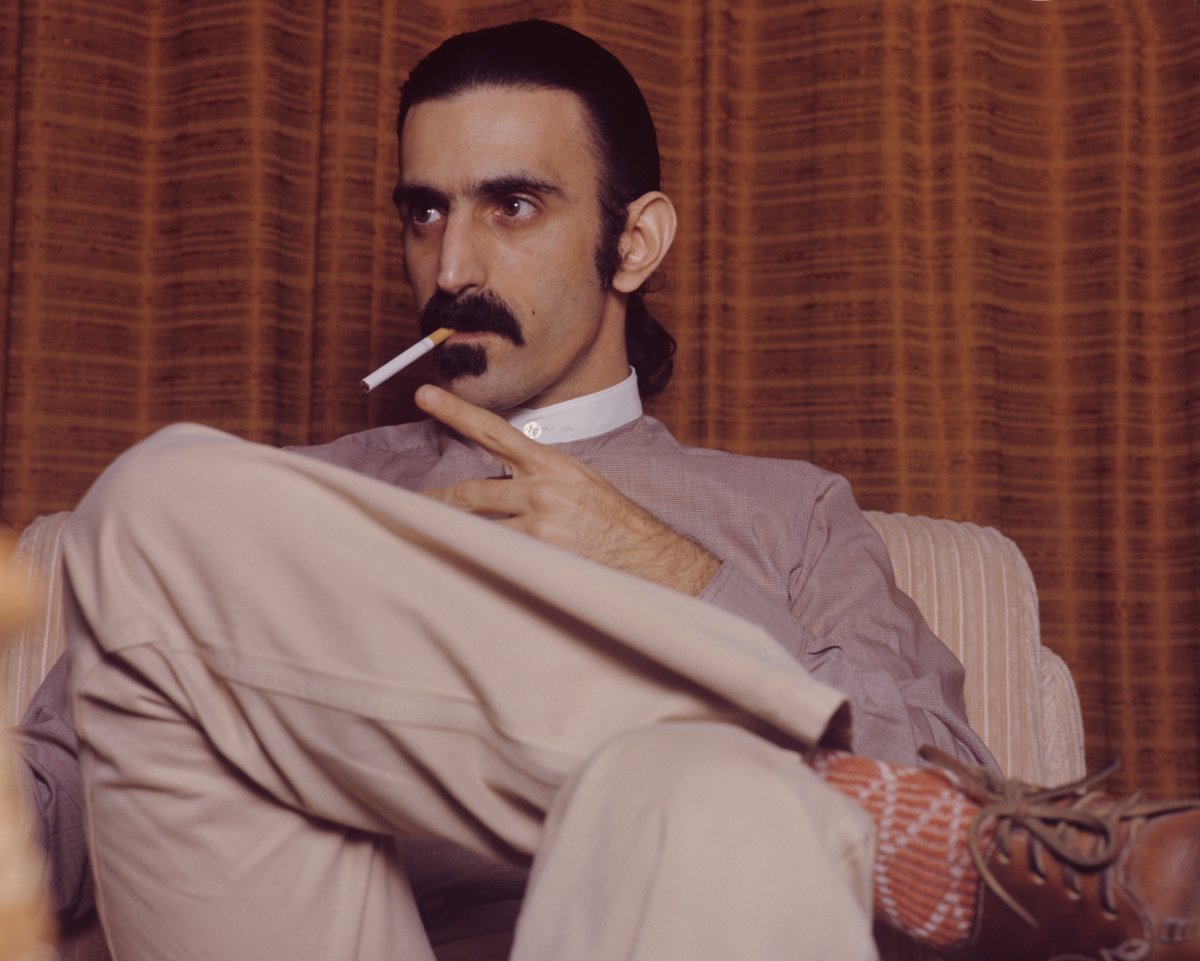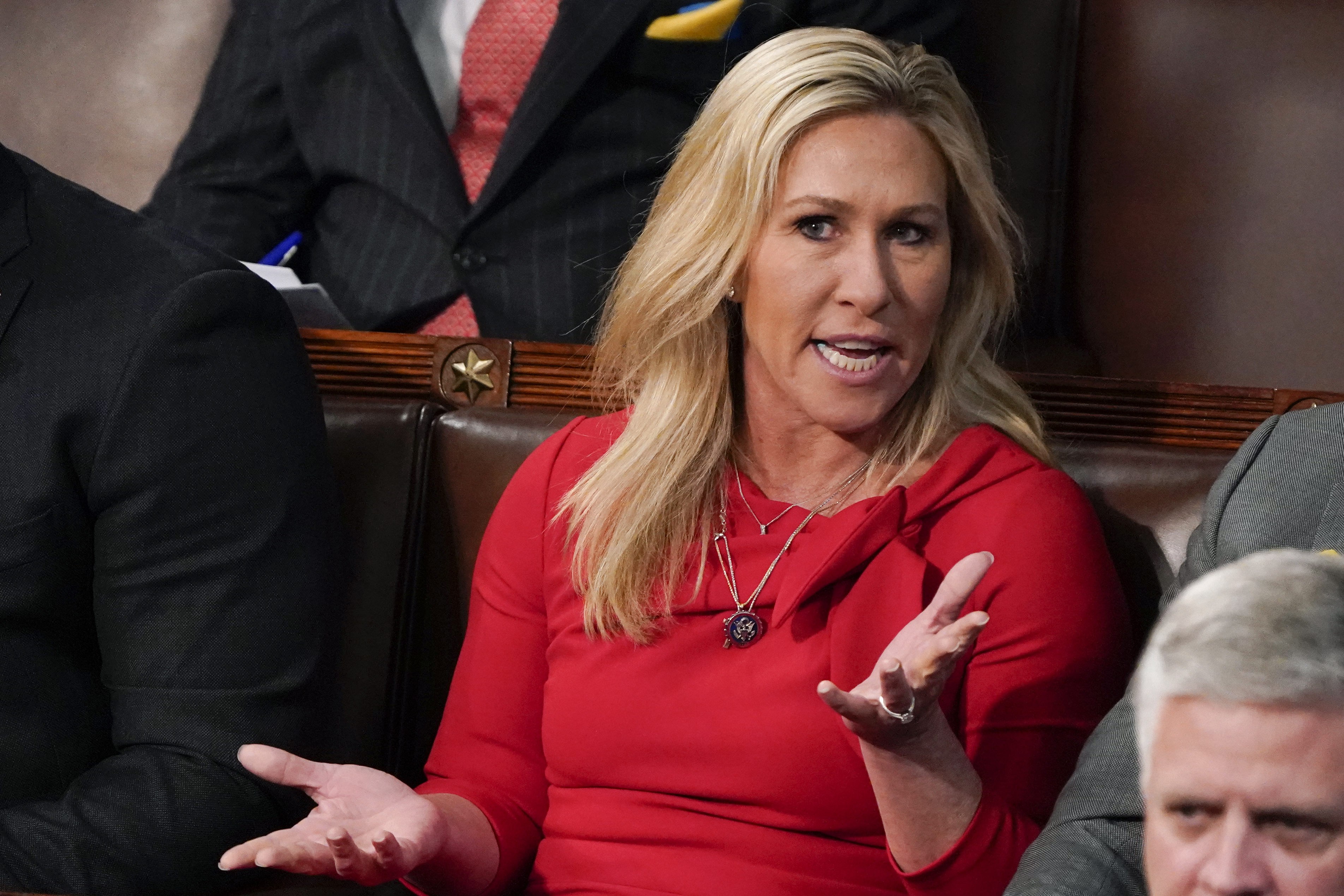Some have called the 1971 European tour of Frank Zappa and his band, the Mothers, cursed. Famously, at the December 4, 1971 show a fan fired a flare gun at the Montreux Casino during Zappa's set, causing the venue to burn down. The fire was immortalized in the Deep Purple hit record "Smoke on the Water."
Thankfully, the band and audience escaped the fire mostly without incident—a few fans were injured and the band's equipment was destroyed, but there was no loss of life. But not even a week later, Zappa was nearly killed after being pushed from the stage.
The audio of Zappa's brutal attack is available for the first time on the new eight-disc box set Mothers 1971, which came out Friday. The event happened on December 10, 1971 at the Rainbow Theatre in London. At the end of the show, shortly following an encore cover of The Beatles' "I Want to Hold Your Hand," Trevor Howell rushed the stage, pushing the bandleader into the orchestra pit below.
Zappa initially hit the other side of the pit before landing on the ground, which band member Ian Underwood, who played keyboards and woodwinds, credits with saving Zappa's life, in an interview with Zappa's son, Ahmet, published in the the Mothers 1971 liner notes.
"Hitting the other side could be what saved him," Underwood said. "Otherwise he could have gone straight down. I mean, who knows how you land? And as we know, he broke his leg."
"And his neck," Ahmet Zappa replied.
In fact, Frank Zappa was even more heavily injured that that. In his autobiography, The Real Frank Zappa Book, he wrote, "The band thought I was dead. I had fallen fifteen feet down into a concrete-floored orchestra pit, my head was over on my shoulder and my neck was bent like it was broken. I had a gash in my chin, a hole in the back of my head, a broken rib and a fractured leg. One arm was paralyzed."
In addition, his larynx was crushed, permanently lowering his voice. His fractured leg healed to be shorter than the other, and he had chronic back pain throughout the rest of his life.
On the recording, after the raucous Beatles cover sped through in about a minute and a half, we hear a brief burst of applause and cheering as Zappa and vocalists Mark Volman and Howard Kaylan thank the audience. Following that, there's the sound of the microphone being bumped into several times, a few people screaming and, ultimately, an eerie silence. Some muffled speech is heard, but it's clear that everyone is in shock over what happened—band, roadies and audience included.

Though it's upsetting to hear, the audio was included because Zappa had said that he would have released it, had he had it. Though he was recording the concert, Zappa thought that the tape had run out before the encore.
"Hearing the audio is painful. But I thought we should include it because Frank said he would have shared it if he had it. And it turns out we found it," Ahmet Zappa said in the liner notes. "It's not pleasant to listen to. Horrible."
Howell's motivation is unclear. Frank Zappa often said in retellings of the story that Howell thought Zappa was ogling his girlfriend from the stage—which Zappa said couldn't have been true as it's nearly impossible to see the audience from the stage, due to the dark house and spotlights shining directly at the band.
Zappa scholar Barry Miles has a slightly different explanation. In his 1993 book Frank Zappa: A Visual Documentary, he writes that Howell told the court "I did it because my girlfriend said she loved Frank."
However, according to a contemporary report from The Times, Howell attacked because he did not think the concert was a good value. Howell pleaded guilty to the attack, and was sentenced to a year in jail.
The incident was the end of both the tour and that particular lineup of the Mothers as Frank spent six weeks in the hospital healing. The first two albums recorded following the incident were the mostly instrumental Waka/Jawaka and The Grand Wazoo, with Zappa providing minimal vocals on both albums.
Mothers 1971 was released March 18, concurrently with a 3-LP set of just the Rainbow Theatre show, and an additional 3-LP expanded 50th anniversary version of the Fillmore East, June 1971 album—one of two official live albums taken from 1971 performances released contemporaneously. The other live album from this era, Just Another Band from L.A., is not represented on this set.
Newsweek reached out to Ahmet Zappa for comment.
Uncommon Knowledge
Newsweek is committed to challenging conventional wisdom and finding connections in the search for common ground.
Newsweek is committed to challenging conventional wisdom and finding connections in the search for common ground.
About the writer
Matt Keeley is a Newsweek editor based in Seattle. His focus is reporting on trends and internet culture. He has ... Read more
To read how Newsweek uses AI as a newsroom tool, Click here.








